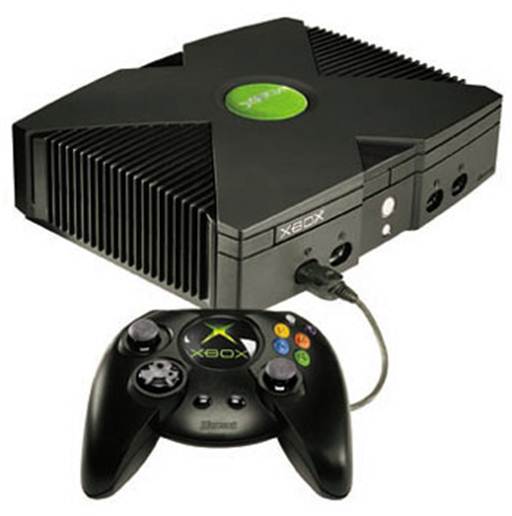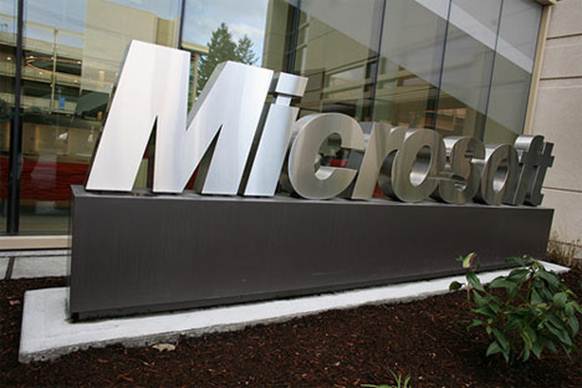There are two ways to view the strategy
that Microsoft is adopting in respect of Windows, depending how generous you're
willing to be.
There's the optimistic one, where in its
efforts to build a future for the company and its operating systems things are
forced to change, and there's collateral damage to software developers that it
would like to avoid (or hasn't even considered).
Or, Microsoft would like to put all the
gaming eggs in the Xbox basket, and games on the PC don't contribute anything
to the long term profitability of Microsoft, so they can be burned and those
who develop them can work on console games.

The
Xbox
I'd have liked to have given Microsoft some
scope for the first possibility, but the closer we get to the launch of Windows
8, the latter analysis seems the inescapable conclusion.
What's at the heart of all this is pure
commercial envy of what Apple has managed to achieve with its own 'walled
garden' model. By doing this Apple gets a cut of everything that's sold for its
hardware and OS, making it obscenely profitable. However, this success has come
at the expense of software developers' income and the pockets of the purchasing
public.
But then these changes aren't just
impacting games, they're potentially undermining application development across
the board. Would we like a PC exclusively populated with Microsoft approved
applications?

“What
Microsoft has planned isn’t just bad for the games developers but for the all
those involved in software development for the PC”
Microsoft’s problem is that Apple laid out
this model from the outset. By buying an iPhone or an iPad you're agreeing to
the scheme, and as a developer you can only make and distribute software
through its approved mechanism. It's a choice...of a sort.
“What Microsoft has planned isn’t just bad
for the games developers but for the all those involved in software development
for the PC”
But the world of Windows has been entirely
different: One where you could write your own code, sell it how you wanted and
have people install it at their behest.
The gamble that Microsoft is taking is that
it can shift from an open situation to a closed one without everyone throwing
up their hands and refusing to get on board.
Windows 8 is probably a stepping stone to
that objective, where initially there is the old Windows 7 open side, and a new
Windows 8 'Metro' closed side. What's the money that Windows 9 only has other
closed side, as per Windows RT? Or is x86 Windows 8 going to be closer than anyone
expected from the outset? That's a genuinely scary thought for anyone that
likes market competition and free software.
But there is another problem here, and one
that had dogged Microsoft for some time. It's the one that accompanies all
successful companies that try to rig the game to their own advantage -
antitrust litigation.
The warning sign for Microsoft is a problem
that Apple has run into regarding the pricing of eBooks, where its undue
influence in that sector has come under the spotlight. The bigger a player
Apple becomes, the more likely it is that it will exceed its own commercial
scope in a way that ends up with it being dragged into court for exactly the
same sorts of things Microsoft got slapped back for doing in the 90s.
There's an interesting parallel here to the
Hollywood movie companies of the 1950s. The power of companies like Warner
Brothers at the time was simply huge because they controlled a 'vertical
market'. By that I mean they owned the film stars and production people, the
studios where the movies where made, the distributers, and the movie houses
where the films played. The normal mechanism where a product must have a market
got entirely subverted, which is why the 'B' movie existed. Hollywood at the
time needed production to fill cinema screens for 52 weeks each year, and the
concept of a demand driven market got entirely bent. Independent film makers
were excluded from the system, and so couldn't get their projects funded, shot,
distributed or screened.
Those in power knew this was wrong in the
30s, but it took until 1948 for the US Supreme Court to determine that for
producers and distributors also to own cinema chains amounted to 'price-fixing
conspiracies', and it forced the distributers to sell off their cinema chains,
breaking the vertical market forever. History lesson’s over.
Other than Apple writing all the software
itself, this is exactly what it too has been allowed to do, because it can
exclude any other company from producing alternative operating systems for its
own hardware, and then exclusively control what apps go on to its products,
taking a cut of any sales in the process.

I
can't see it's going to achieve what Microsoft thinks it will, and the company
that isn't the most popular in the tech sector might actually find another
Vista-like wholesale rejection on their hands, again.
What's slightly odd is that Apple has been
allowed to so far get away with this, given the Hollywood example, though the
company does seem to get cut some slack where others might not get the same
treatment. Why I've no idea, but the millions it spends in lobbying the US
Congress and Senate is clearly money well spent.
The bigger question must be is if Microsoft
pulls the same trick will people still ignore the vertically stacked elephants
in this room? Somehow, I doubt it. And, worryingly for Apple, it might actually
highlight what it has been doing for longer, and draw fire on it.
What Microsoft has planned isn't just bad
for the games developers, which it patently is, but for the all those involved
in software development for the PC. The sooner that people wake up to this, and
consumers appreciate what's being proposed here, the sooner Microsoft can get
the message, loud and clear that PC users won't put up with having a walled
garden built around them through stealth.
And perhaps the question it really needs to
ask itself is, if both it and Apple operate in such a draconian fashion, which
of the two will you, the consumer, pick, and what third option would appear to
fill the void of those who don't want either?
However this goes, I can't see it's going
to achieve what Microsoft thinks it will, and the company that isn't the most
popular in the tech sector might actually find another Vista-like wholesale
rejection on their hands, again.
Vista managed to upset the buying public
and PC hardware makers, but with Windows 8 Microsoft might manage the triple
score of including software developers in the legions of those unhappy.